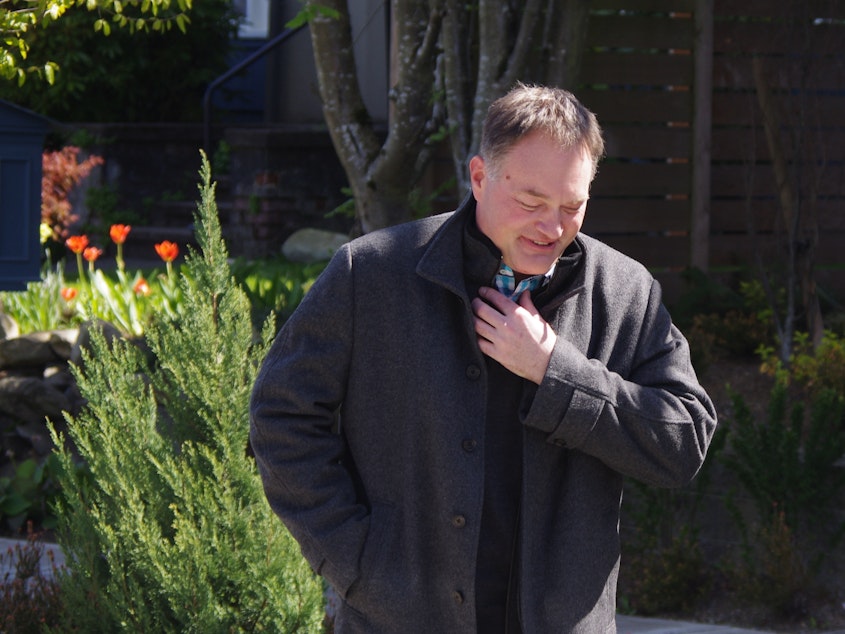'I Felt Like Rip Van Winkle': One Of First U.S. Doctors With COVID-19 Is Back Home

In mid-March, he was a cautionary tale for medical workers: an unnamed doctor "in his 40s" with a case of COVID-19 so bad, he was near death.
Almost a month later, 45-year-old emergency physician Ryan Padgett is back in his home in Seattle, rebuilding his strength and marveling at how quickly the novel virus laid him low.
"This is very scary," he says. "That it's not only medically fragile patients, but young people can be cut at the knees and taken down by this."
Padgett works at EvergreenHealth, the hospital in suburban Seattle that saw the country's first known COVID-19 deaths at the end of February, primarily patients from the Life Care nursing home.
At first, he says he just had a headache and some muscle soreness, but within just a few days his health took a sharp downturn.
Sponsored
"It becomes a big deal when you realize you can't breathe," he says.
It took the urging of his fiancee, Connie Kinsley, to get him back to hospital. "He didn't want to," she says, "because doctors are the worst patients."
Within hours of getting to EvergreenHealth, they were putting him on a ventilator.
"I have no personal recollection, but evidently I told [Kinsley] where some important documents were, just in case," he says. "And the next memory I had was about 16 days later, waking up at Swedish Hospital."
While he was unconscious, he'd been transferred to a different hospital — Swedish Medical Center near downtown Seattle, because it's one of only two hospitals in the state with an extreme form of life support called extracorporeal membrane oxygenation, or ECMO. It bypasses the lungs to oxygenate a patient's blood.
Sponsored
"It saved my life," Padgett says of ECMO. "I'd dwindled to the point of my lungs, liver, kidneys and heart, all going into organ failure, multi-system organ failure."
"ECMO allowed us to sustain his life while we tried other therapies," says Dr. Krish Patel, an oncologist at Swedish who helped treat Padgett.
Patel thinks the drug that may have made the difference was something called "tocilizumab," an immunosuppressive therapy for conditions such as rheumotoid arthritis. The hope is that it can also tame the immune system overreactions known as "cytokine storms" which can ravage a COVID-19 patient's organs.
The same drug has been tried on other patients, and Swedish is now taking part in a broader trial of its effectiveness.
Padgett is impressed by how quickly medicine's understanding of COVID-19 has changed, just during the weeks he was sedated and on a ventilator.
Sponsored
"Not only has the understanding of the illness changed, but the world changed," he says. "I felt like Rip Van Winkle, waking up ... and realizing that the world had shut down."
He also found out his May 16 wedding had been postponed. He and his fiancee don't seem too concerned about it.
"Perspective changes, I tell you," Padgett says. "When you survive something like I survived, you realize that's all window dressing. It doesn't matter." [Copyright 2020 NPR]



